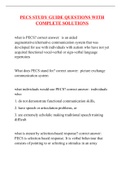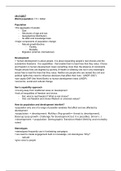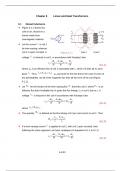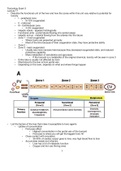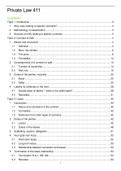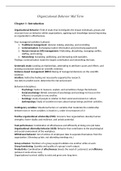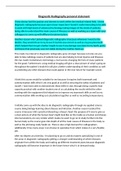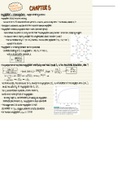SYSTEM TECHNOLOGIES
Module 1.1
Types of computer systems
Server: A powerful computer with plenty of storage and memory. Used in networks to store large
amounts of data for computers on the network to access and to share devices, such as printers
Workstation: A computer intended for individual use that’s better than a PC. It’s intended for
business or professional use. Uses applications designed for them and are used by small
engineering companies, architects, and graphic designers
Personal Computers / Desktop: Referred to as a “microcomputer” as it’s a compact computer with
a complete system. They are the smallest, least expensive and most used type of computer. They
are physically smaller, have little memory, less processing power and permit fewer peripherals. Not
designed to be portable
Laptops / Notebooks: Portable PCs that combine a display, keyboard, processor, memory, hard
drive, and cursor positioning device all in one. Battery-operated making it portable
Tablets: Smaller than laptops and easy to carry. Generally cheaper than new laptops, and their
components are less powerful compared to regular laptops
Smartphones: Handheld computers that use flash memory for storage. Uses virtual keyboards and
touch-screen technology. Lightweight and have a good battery life
Embedded Systems / Dedicated Devices: Standalone electronic hardware designed to perform
dedicated computing tasks, for example ATM’s, MP3 players and so on
, NON PORTABLE COMPUTERS
Generally consist of a system unit, monitor, mouse and keyboard
They are ...
Large in size
Not meant to be moved around
Generally more powerful than mobile or portable computers
All in one units are easier to transport and take up less space but are more difficult to fix or upgrade
Entry level computers
Cheapest to purchase
Lower hardware specifications
Come with ‘Home editions’ of software
PORTABLE COMPUTERS
All-in-one design includes screen, keyboard and pointing device
Incorporated in casing designed to Types of Portable Computers
fold (to take up less space) Laptop / Notebook
be easy to carry Tablet
protect delicate parts Hybrid computer
Smartphone
Phablet
WHEN COMPARING COMPUTERS YOU SHOULD LOOK AT
How powerful they are - CPU speed, how much RAM, size of Storage, and what GPU
What they are used for - Servers / Basic office applications
Their size - Range from huge mainframe computers to hand-held devices
Software they use - What operating system ?
Module 1.1
Types of computer systems
Server: A powerful computer with plenty of storage and memory. Used in networks to store large
amounts of data for computers on the network to access and to share devices, such as printers
Workstation: A computer intended for individual use that’s better than a PC. It’s intended for
business or professional use. Uses applications designed for them and are used by small
engineering companies, architects, and graphic designers
Personal Computers / Desktop: Referred to as a “microcomputer” as it’s a compact computer with
a complete system. They are the smallest, least expensive and most used type of computer. They
are physically smaller, have little memory, less processing power and permit fewer peripherals. Not
designed to be portable
Laptops / Notebooks: Portable PCs that combine a display, keyboard, processor, memory, hard
drive, and cursor positioning device all in one. Battery-operated making it portable
Tablets: Smaller than laptops and easy to carry. Generally cheaper than new laptops, and their
components are less powerful compared to regular laptops
Smartphones: Handheld computers that use flash memory for storage. Uses virtual keyboards and
touch-screen technology. Lightweight and have a good battery life
Embedded Systems / Dedicated Devices: Standalone electronic hardware designed to perform
dedicated computing tasks, for example ATM’s, MP3 players and so on
, NON PORTABLE COMPUTERS
Generally consist of a system unit, monitor, mouse and keyboard
They are ...
Large in size
Not meant to be moved around
Generally more powerful than mobile or portable computers
All in one units are easier to transport and take up less space but are more difficult to fix or upgrade
Entry level computers
Cheapest to purchase
Lower hardware specifications
Come with ‘Home editions’ of software
PORTABLE COMPUTERS
All-in-one design includes screen, keyboard and pointing device
Incorporated in casing designed to Types of Portable Computers
fold (to take up less space) Laptop / Notebook
be easy to carry Tablet
protect delicate parts Hybrid computer
Smartphone
Phablet
WHEN COMPARING COMPUTERS YOU SHOULD LOOK AT
How powerful they are - CPU speed, how much RAM, size of Storage, and what GPU
What they are used for - Servers / Basic office applications
Their size - Range from huge mainframe computers to hand-held devices
Software they use - What operating system ?

